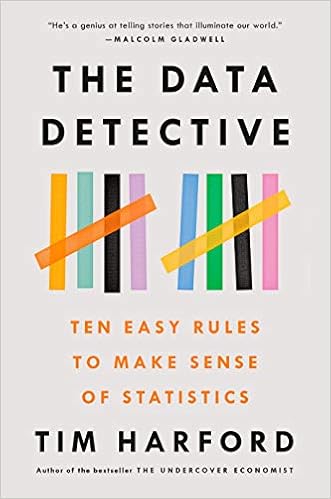3 New Books Help Us Think About Economic Issues
 ● Think Again: The Power of Knowing What You Don’t Know
● Think Again: The Power of Knowing What You Don’t Know
Adam Grant
Review via Forbes
Several years into my career, a senior faculty member and I had a conversation that led me to one of those ‘a-ha’ moments. “Just because something is written in a textbook, it is not necessarily true. It is only the author’s version of the truth,” she told me. I was stunned. That one statement contradicted everything I learned throughout my educational and professional career. I let that statement marinate in my head for a while. Before long, I realized that my colleague was correct. I began rethinking everything I learned and reexamined the basis for that truth. In his latest book, Think Again, organizational psychologist and Wharton professor Dr. Adam Grant looks into this very issue. He suggests that success rests in the power of knowing what we don’t know and being released from our tunnel vision.
 ● The Data Detective: Ten Easy Rules to Make Sense of Statistics
● The Data Detective: Ten Easy Rules to Make Sense of Statistics
Tim Harford
Review via The Wall Street Journal
Data, when used to reveal the value of hospital hygiene or the harm of tobacco smoke, can be a vital force for good, as Tim Harford reminds us in “The Data Detective.” But the very power of statistics—the “unreasonable effectiveness of data,” as three Google scientists put it—has also prompted a backlash, particularly as we’ve become aware of the potential for both honest confusion and deliberate abuse.
Mr. Harford, a British economist and journalist, hopes to persuade us not to give up on data, urging us to embrace thoughtful skepticism and avoid easy cynicism. As he expertly guides us through the many ways in which data can trick us, we see how difficult such an effort can be.
 ● Broke in America: Seeing, Understanding, and Ending US Poverty
● Broke in America: Seeing, Understanding, and Ending US Poverty
Joanne Samuel Goldblum and Colleen Shaddox
Review via Jacobin Magazine
When we speak to our sisters and brothers living in poverty in the United States, the confessional trope that describes so many dysfunctional relationships should be our opening line. “Poverty is a choice that the fortunate collectively make,” social worker Joanne Goldblum and journalist Colleen Shaddox write in Broke in America: Seeing, Understanding, and Ending U.S. Poverty. “No American should ever be poor.”
Please note that the links to books above are affiliate links with Amazon.com and James Picerno (a.k.a. The Capital Spectator) earns money if you buy one of the titles listed. Also note that you will not pay extra for a book even though it generates revenue for The Capital Spectator. By purchasing books through this site, you provide support for The Capital Spectator’s free content. Thank you!
Disclosure: None.



